U.S. Says U.N. Sanctions 'Will Bite' After North Korea Threatens Nuclear Attack
(CNN) -- The U.N. Security Council unanimously
passed tougher sanctions against North Korea Thursday targeting the
secretive nation's nuclear program hours after Pyongyang threatened a
possible "preemptive nuclear attack."
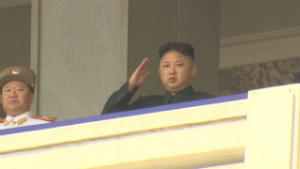 U.N. toughens sanctions on North Korea
U.N. toughens sanctions on North Korea
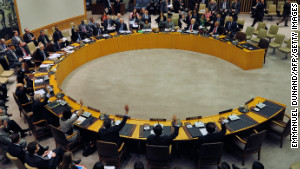 China's role in North Korean sanctions
China's role in North Korean sanctions
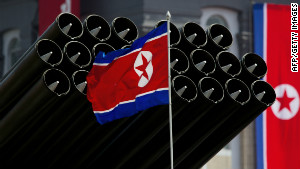 North Korea threatens nuclear strike
North Korea threatens nuclear strike
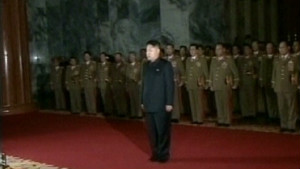 Anger from North Korea over sanctions
Anger from North Korea over sanctions
 North Korea at it again with threats
North Korea at it again with threats
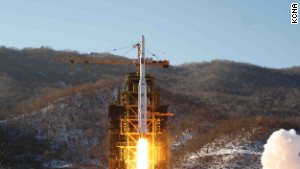 North Korea's nuclear ambitions
North Korea's nuclear ambitions
Follow @TheWeepingEagle
"These sanctions will bite, and bite hard," U.S. Ambassador to the United Nations Susan Rice said after the vote.
China, North Korea's key
ally, could have used its veto power to block the sanctions. Instead,
after weeks of negotiating, it signed on to the final draft.
"China is a country of
principle," China's U.N. Ambassador Li Baodong said. "We are firmly
committed to safeguarding peace and stability on the Korean peninsula."
 U.N. toughens sanctions on North Korea
U.N. toughens sanctions on North Korea
 China's role in North Korean sanctions
China's role in North Korean sanctions
 North Korea threatens nuclear strike
North Korea threatens nuclear strike
Leading up to the vote, Pyongyang ratcheted up its bellicose rhetoric.
A spokesman for the North Korean foreign ministry suggested the United States "is set to light a fuse for a nuclear war."
As a result, North Korea
"will exercise the right to a preemptive nuclear attack to destroy the
strongholds of the aggressors and to defend the supreme interests of the
country," the country said in a statement carried by the state-run
Korean Central News Agency.
Despite the strong
language, analysts say North Korea is years away from having the
technology necessary to mount a nuclear warhead on a missile and aim it
accurately at a target. And, analysts say, North Korea is unlikely to
seek a direct military conflict with the United States, preferring
instead to try to gain traction through threats and the buildup of its
military deterrent.
But the threat came amid
increased concern over Pyongyang's dogged efforts to advance its nuclear
and missile technology after a recent long-range rocket launch and
underground atomic blast.
On Tuesday, North Korea
said it planned to scrap the armistice that stopped the Korean War in
1953 and warned it could carry out strikes against the United States and
South Korea.
Analysts: 'Boxed in' North Korea's bluster 'particularly dangerous'
The rhetoric came not
only in advance of the U.N. vote, but also as military drills take place
on either side of the heavily armed border that divides the two Koreas.
This week, the United
States and South Korean began two months of joint exercises, known as
Foal Eagle. North Korea has called the annual training exercises "an
open declaration of a war," but South Korea says it notified Pyongyang
that the drills "are defensive in nature."
 Anger from North Korea over sanctions
Anger from North Korea over sanctions
 North Korea at it again with threats
North Korea at it again with threats
 North Korea's nuclear ambitions
North Korea's nuclear ambitions
North Korea's nuclear
threat Thursday "may suggest that Pyongyang feels even more boxed in
than usual," said Michael Mazza of the American Enterprise Institute.
And while a nuclear
attack itself is not an immediate palpable threat, "This surge in
provocative rhetoric is particularly dangerous," added Michael Auslin,
also with the institute. "South Korea's new president (Park Geun Hye)
can't be seen to back down in the face of the North's threats, while
(new North Korean leader) Kim Jong Un may feel that his successful
missile and nuclear tests give him the ability to keep pressuring Seoul.
The two may wind up talking themselves into conflict."
South Korea's U.N.
Ambassador Kim Sook said Thursday the new resolution "reflects the will
of the international community," which "will never tolerate North
Korea's repeated violations and North Korea's nuclear and ballistic
missile program."
"Each violation will be met by stronger responses and measures," he added.
Will the new sanctions work?
The goal of the new sanctions is
to stymie the activities of North Korean banks and cash couriers who
might be funneling money to the secretive regime's nuclear and missile
programs.
It will be tougher for the regime to move large sums of cash stuffed into suitcases, Rice said.
The U.N. resolution also
outlines measures to step up scrutiny of suspicious sea shipments and
air cargo. And it expands restrictions to encompass several institutions
and senior officials in the North's weapons industry, as well as a
range of materials and technology known to be used in uranium
enrichment.
It also blocks the sale of luxury goods -- such as yachts and certain high-end jewelry -- to North Korea.
"As a result, North
Korea's ruling elite, who have been living large while impoverishing
their people, will pay a price" for the ongoing nuclear activities, Rice
said.
Some doubt whether the new measures will make much difference.
Sanctions imposed after previous nuclear tests and rocket launches have failed to deter Pyongyang.
China will go a long way toward determining whether the new sanctions really do have "bite," analysts say.
"As long as China allows
North Korea to operate, as long as China provides food, energy
assistance, and investment, the sanctions really don't matter," said
Doug Bandow of the Cato Institute.
North Korea notoriously
allows many of its people to live in malnutrition and starvation. Still,
the country needs a functioning economy, partly to finance its
military, Bandow explained.
"Kim Jong Un is now
paying the price for going ahead with a nuclear test despite Chinese
warnings not to create trouble during the political transition that has
been under way in Beijing the past year," Mark Fitzpatrick, director of
the Non-Proliferation and Disarmament Programme at the UK-based
International Institute for Strategic Studies, said this week.
Future levels of Chinese
grain sales to North Korea are a possible indicator of Beijing's
commitment to putting meaningful pressure on Pyongyang, he said.
Ken Gause, an analyst with CNA, said the new sanctions won't deter North Korea from building up its nuclear program.
"North Korea last year
inserted language into its constitution that the country is a nuclear
power. To walk back from this, especially under pressure from the
outside world, would undermine Kim Jong Un's legitimacy and make him
vulnerable. He will not do this," said Gause.
North Korea casts U.N. sanctions as part of an aggressive, U.S.-led conspiracy against it.